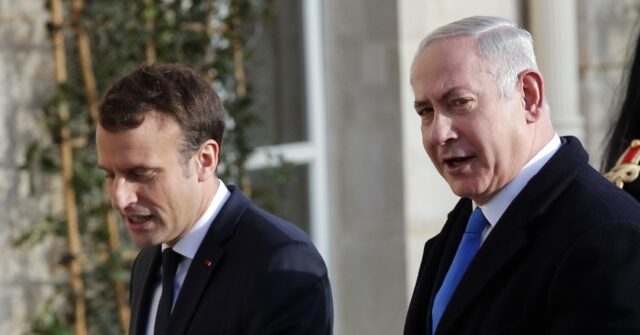Israeli Prime Minister Benjamin Netanyahu recently expressed strong disapproval of French President Emmanuel Macron’s comments regarding the legitimacy of Israel’s existence, asserting that the nation owes its establishment solely to historical struggles rather than United Nations decisions. Macron made headlines by suggesting during a ministerial meeting that Israel must acknowledge UN resolutions, highlighting the General Assembly’s 1947 vote that partitioned Palestine into Jewish and Arab states. Netanyahu countered that Israel’s statehood resulted from victories in the War of Independence, emphasizing the sacrifices made by those who fought, including Holocaust survivors from France. This exchange underscores the enduring tension between Israel and France, especially as Macron has recently called for a ceasefire in ongoing conflicts involving Hezbollah and Hamas.
Netanyahu criticized Macron’s insistence on a ceasefire, arguing that such a move would fail to alter the security landscape in Lebanon or address the persistent threat posed by Hezbollah. In his remarks, he stated that the objective of Israeli military operations is to neutralize the threat from Hezbollah, ensuring the safety of Israeli citizens living near the northern border. He expressed disbelief at Macron’s proposed peace conference in Paris, which included delegations from countries like South Africa and Algeria, both noted for their critical stance towards Israel’s self-defense and legitimacy. By highlighting the perceived bias in these diplomatic efforts, Netanyahu reinforced the notion that any peace initiatives must take into account Israel’s security needs and the ongoing dangers presented by its adversaries.
The broader context of these exchanges reveals a historical shift in France’s stance towards Israel. Initially supportive in the early days through arms supplies, French policy has undergone a significant transformation. This change has been driven by a pivot towards appeasing Arab states following tensions in the 1960s, leading to a reluctance to support Israel amidst its conflicts. The evolution of French foreign policy reflects a complicated relationship, influenced not only by geopolitical realities but also by rising antisemitism within France, which has driven many Jewish citizens to emigrate in recent years. Observers note that the backlash against Israel within France has often been linked to broader societal issues tied to radicalism and Islamism.
Netanyahu further articulated that calls for an arms embargo against Israel, such as those supported by Macron, fail to recognize the complexities of Israel’s security challenges. The Prime Minister positioned Israel as a nation acting in self-defense, striving to protect its citizens from external threats. Highlighting the dynamic security situation, particularly involving Iran-backed Hezbollah, Netanyahu asserted that any negotiations or bilateral discussions should prioritize the safety and security of Israeli citizens over unilateral concessions that would not substantially change the strategic landscape.
In light of Macron’s comments, Netanyahu emphasized the importance of acknowledging the overarching antisemitism that has manifested in numerous anti-Israel resolutions passed by the United Nations in recent decades. He argued that these resolutions have collectively sought to undermine the legitimacy of Israel as the sole Jewish state, constraining its ability to defend itself. This framework of historical grievances and contemporary security concerns has positioned Netanyahu to take a firm stance not just towards Macron, but towards the broader Western discourse on Israel’s policies and strategies in the region.
As the global stage continues to engage with complex issues relating to the Israeli-Palestinian conflict, the exchanges between Netanyahu and Macron reveal deep-seated tensions that stem from differing interpretations of history, legitimacy, and security. Netanyahu’s defiance against French perspectives underscores a broader Israeli narrative that insists on the validity of its security policies in the face of persistent threats. The implications of Macron’s remarks and the subsequent Israeli response reflect ongoing challenges in achieving peace and understanding in a region marked by legacies of conflict and evolving international relations.

